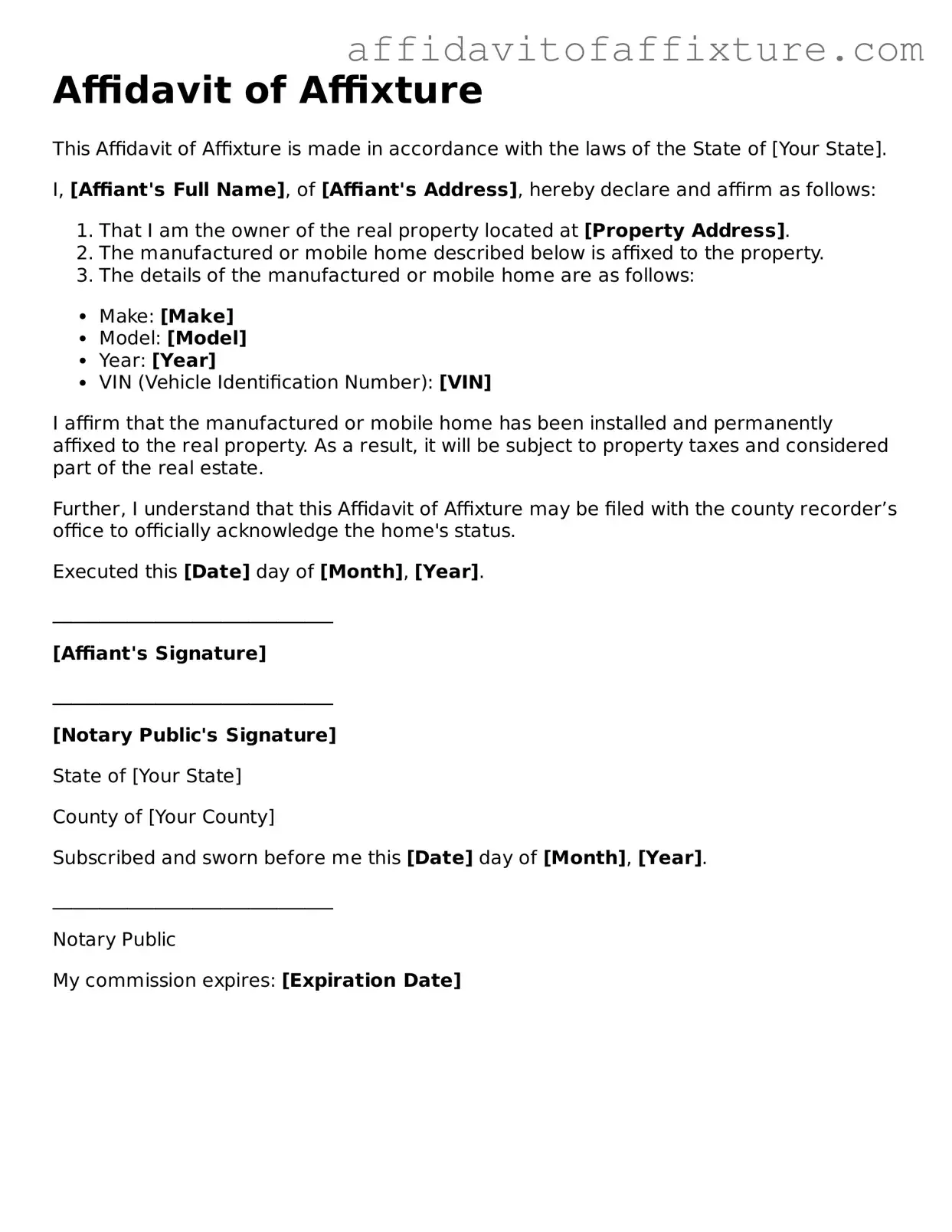Valid Affidavit of Affixture Template
The Affidavit of Affixture form is a legal document used to establish that a manufactured home is permanently affixed to a piece of real property. This form serves to clarify the ownership status of the home and the land it occupies. By filing this affidavit, homeowners can ensure their property is recognized as real estate, which can affect financing, taxes, and resale value.
Open Editor Now
